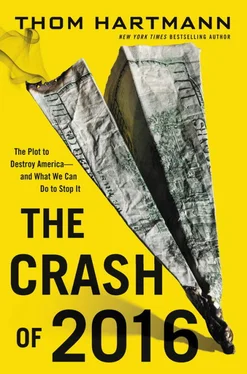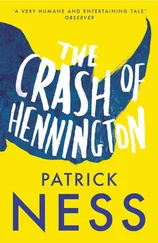If we add to all of this some good scientific innovation in developing a mix of low-carbon energy resources (biomass, geothermal, wind, tidal power, and so on), and can figure out a way to strip the carbon dioxide out of our power-plant smokestacks (and our atmosphere) and turn it into a solid (calcium carbonate—which you can buy at the store under the brand name Tums—is a good candidate for a desirable product produced by binding carbon, in this case to calcium), it’s not inconceivable that by 2050 we could cut our CO 2emissions by over 80 percent. And perhaps even decades sooner, if we begin now. 198Plus we could strip oil of its strategic value and make our nation independent of Middle Eastern dictatorships.
A new study by the research firm Bloomberg New Energy Finance has found that unsubsidized renewable energy is now cheaper than fossil fuels such as coal and gas.
In fact, it’s a lot cheaper.
Data show that wind farms in Australia can produce energy at AU$80/MWh (megawatt hour). Meanwhile, coal plants are producing energy at AU$143/MWh and gas at AU$116/MWh.
Unlike the United States, where energy companies can pollute and have the costs (from illness to environmental degradation) picked up by the taxpayers, Australia has a carbon tax, which partially explains why renewables have a price advantage. But the data show that even without the cost of the carbon tax factored in, wind energy is still 14 cents cheaper than coal and 18 cents cheaper than gas.
And this is in a nation that relies more heavily on coal than any other industrialized nation in the world. But that coal reliance will soon change, because companies in Australia are quickly adopting new, cheaper, renewable energies. As the study found, banks and lending institutions in Australia are now less and less likely to finance new coal plants, because they’ve simply become a bad investment.
And while Australian wind is cheapest now, by 2020—and maybe sooner—solar power will also be cheaper than coal and gas in Australia. The energy game is rapidly changing in that country.
Michael Liebreich, the chief executive of Bloomberg New Energy Finance, noted, “The perception that fossil fuels are cheap and renewables are expensive is now out of date.”
Well, here’s a news flash: That perception has been out of date for a while now—even right here in the United States.
According to the Energy Information Administration, 199looking ahead to 2016, natural gas is the cheapest energy in the United States at roughly $66/MWh. Coal comes in second at $94/MWh. But right behind coal is renewable wind at $97/MWh, which in large part accounts for why US wind energy production has tripled since 2000.
And, unlike in Australia, none of those US prices account for the externalities associated with fossil fuels, consequences such as pollution, cancers, the need for military protection, or global warming. In America, the fossil-fuel industry has made sure those externalities are paid for not by the coal and gas energy producers but instead by you and me.
The fossil-fuel industry doesn’t pay a penny of the cost of rapidly accelerating climate change. Or the health care costs from exhaust- and refinery-driven diseases and deaths from air, water, and other pollution. Not to mention the community costs of decreasing property values when a coal plant is put in your backyard. Nor do they put a cent toward the cost of our navy keeping the oil-shipping lanes open or of our soldiers “protecting” the countries that “produce” all that oil.
All of these externalities come with fossil-fuel production, but pretty much don’t exist with renewable-energy production. And those externality costs are not only not paid for by the fossil-fuel industry—they’re never even mentioned in the corporate-run “news” media in America.
Research from the Annals of the New York Academy of Sciences concludes that the total cost of these externalities, if paid by the polluters themselves, would raise US fossil-fuel prices by as much as nearly $3/MWh. 200And that’s an extremely conservative estimate. Which puts wind power on parity with coal in America.
The trend lines here are pretty clear: Buggywhip, meet automobile!
Renewables are getting cheaper, and fossil fuels are getting more expensive.
Which is why we as a nation need to throw everything we have at making renewable energies our primary way of powering America into the twenty-first century.
Think of it as a new Apollo Project. We need green energy, local energy, and a twenty-first-century smart grid to handle it all.
Over time, the marketplace could do this. But markets are reactive, not active. With just about every developed country in the world ahead of us, and our dependence on oil making us more and more tightly bound to Middle Eastern dictators and radicals, to wait and hope that big transnational corporations will help birth a new America is both naive and stupid. Instead of depending on them, we should be recovering from them the cost of their externalities with a carbon tax that can be used to build that new energy infrastructure for America.
Let’s take a lesson from Australia and the Eurozone, which have both set up carbon taxes to make nineteenth-century energy barons pay for at least some of the damage they’ve done. And then use that revenue for a green-energy revolution here in America.
The way to get there is known. The products are available. The pressure is growing, from climate change–induced disasters to a growing recognition that transferring $1 billion a day to other countries (and big transnational corporations) to buy oil is no way to live.
In January 2013, in Chattanooga, Tennessee, a massive solar-power facility comprising over 33,600 individual solar modules capable of producing 13.1 gigawatt hours of electricity every year was turned on. 201It’s big enough to power 1,200 homes, but will be used to power a Volkswagen manufacturing plant. And it’s the biggest solar installation ever built in the state of Tennessee.
Also, the United States just surpassed Germany as the number two country in the world when it comes to producing wind power. The largest wind farm in the world, the Alta Wind Energy Center, 202is located right here in the United States in Kern County, California. The Department of Energy estimates that 20 percent of our national energy could be produced by wind come 2030. 203
After the Crash of 2016, we must move forward with new energy.
CHAPTER 15
Democratize the Economy
The few own the many because they possess the means of livelihood of all… The country is governed for the richest, for the corporations, the bankers, the land speculators, and for the exploiters of labor. The majority of mankind are working people. So long as their fair demands—the ownership and control of their livelihoods—are set at naught, we can have neither men’s rights nor women’s rights. The majority of mankind is ground down by industrial oppression in order that the small remnant may live in ease.
—Helen Keller, 1911
Igot picked up in a cab by a lawyer.
I was in Madison, Wisconsin, to speak, for the second year in a row, at the “Fighting Bob Fest,” where about ten thousand progressives from the upper Midwest have gotten together every year for the past decade (at the suggestion of Jim Hightower, and organized by Ed Garvey) to celebrate the memory of progressive Republican “Fighting Bob” La Follette. I gave one of several keynote addresses along with Senator Bernie Sanders, Cornel West, and Greg Palast, among others.
But this year was different from previous years at Fighting Bob Fest. The new governor, Scott Walker, had launched his attack on unions, sparking hundreds of thousands of Wisconsinites and other supporters of unions from across America to gather on the lawns of the capitol in Madison in protest. With the unions mobilized, recall elections were launched against several Republican state senators, and were successful against two, nearly tipping the balance of power in the state senate back to the Democrats. Soon, a recall campaign would be launched against Governor Scott Walker himself.
Читать дальше












